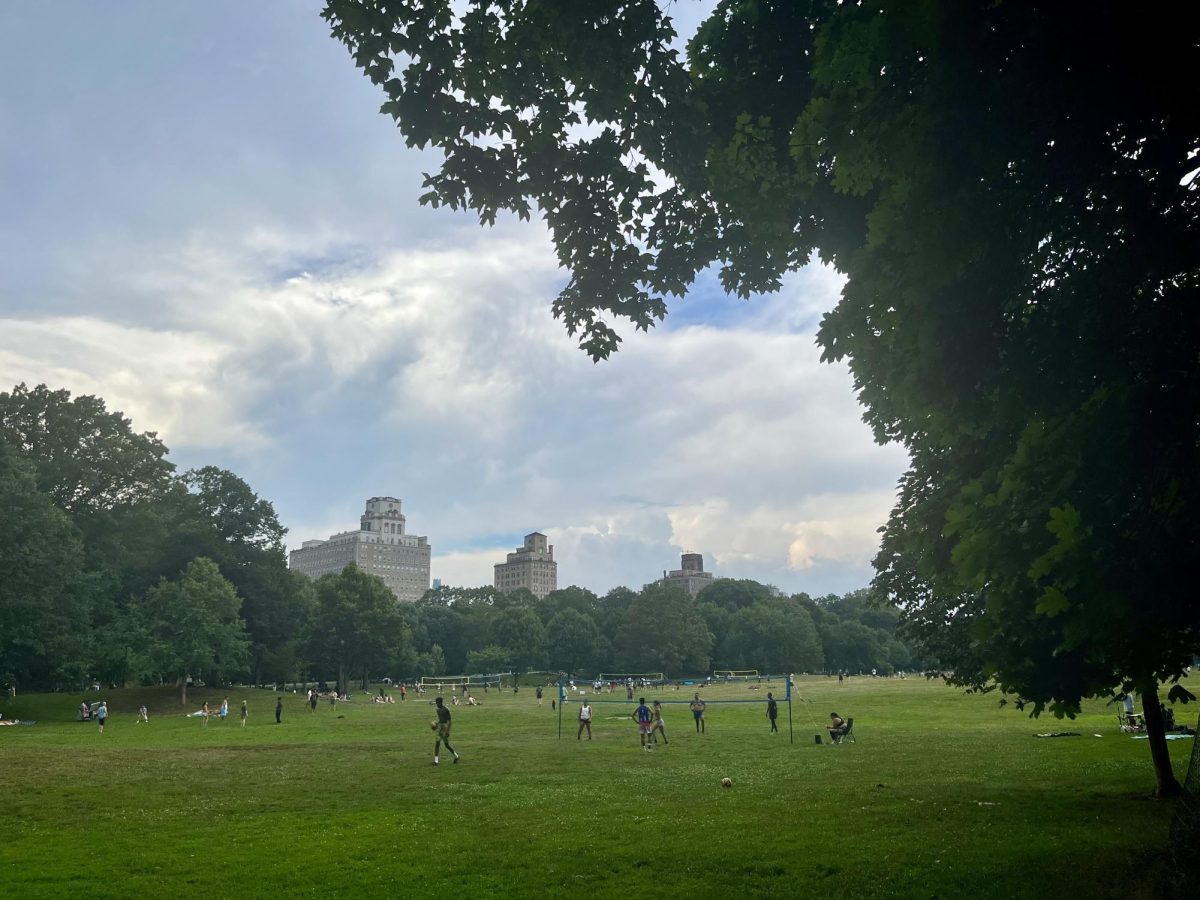The Muse is a creative publication that aims to share the interests, talents, and research of students on campus. The following represents the opinion of the student writer and does not represent the views of Loyola University Maryland, the Greyhound, or Loyola University’s Department of Communication.
The annual coming of spring brings with it a flourishing of nature and a renewal of the colors and vibrance that once filled the recently snow-covered landscapes of our homes. Living in a city though, this transition’s recoloration is tinted by the silvers, browns, and grays of concrete, brick, and steel that make up the buildings that have redefined our earth. As a lover of winter, spring, and cities, I adore this springtime joining of human-built constructions and the more natural state of the world that surrounds them. One of my favorite spots on Loyola’s campus during these coming weeks is by the flowering trees outside of the Theology and Philosophy Department, which are surrounded on all fours by the walls of the humanities building. There is something so serene to me about that mixture.
Folk music is something I tend to associate with nature and more rural spaces as well, though its history in cities is undeniably expansive. As I listen to the works of Nick Drake, Skyforger, or Joni Mitchell, my mind wanders to images of rolling hills, stunning redwood forests, and winding mountain ranges. It’s as though I’m taking a road trip through it all. When listening to the music of Jeffrey Lewis though, that springtime city feeling is vividly evoked. Hailing from the Lower East Side of New York City, Lewis has been writing witty, warm, and rambling folk songs since 1998. His bluntly self-deprecating writing style balances tales of life lessons, failures, loneliness, and fame as told through his memories of friends, neighbors, strangers, lovers, and enemies, all wrapped up in a smart and humorous package – but without ever feeling insincere. His lyrics make reference to Greyhound Buses, Harlem, the Chelsea Hotel, Avenue A, Seattle, and spatterings of other urban spaces, making his sound hard to separate from city living. However, that intimacy and stripped-back feeling of folk is never lost on him either though.
Lewis’ 2009 album “‘Em Are I”, though not my favorite of his releases, is an excellent one that evokes this springtime imagery more than any other in my mind. It kicks things off with the most energetic moment on the record, “Slogans,” grabbing your attention instantly. Over a speedy guitar and crunchy drums, Lewis’ warbly voice picks himself up from aimlessly walking through regretful memories with a chant that “everyone you meet is not better than you.” Here the tone for the rest of the album will be set: that of nostalgia and melancholy, but ultimately there is a strengthening and heartwarming quality to it all.
“Slogans” is followed by “Roll Bus Roll,” a much more relaxed track, which sees Lewis riding a bus out of New York City. As he settles in for the hours-long journey he has just his seat to move around. On this ride, he’s left alone with only his thoughts, and his rolled-up sweatshirt to use as a pillow, as he unwillingly reminisces about these New York sights he has passed before and all the regrets he associates with them. He finds solace that this bus ride is taking him away from it all though, even if just temporarily. The passage of time and the healing that comes with it is mirrored through the endless movement of these buses, back and forth between stop and stop, just as Lewis’ remorse will alleviate as he rests on this extended bus ride, which slowly leads him to sleep. The bright but mellow instrumentation is comforting and warm, wrapping Lewis’ pensiveness in that sleepy feeling that lets him drift away from his regret.
Every song on the album is worth listening to, but other highlights on the album include “To Be Objectified,” where Lewis reflects upon his body, where it came from, what it will become, and the cycle of life, “The Upside-down Cross,” which is a rowdy song written by Lewis’ brother featuring gang vocals and a powerful piano, and “It’s Not Impossible,” in which Lewis looks back on his self-doubting writing early in the record, as he lifts himself up once again, reminding himself of what he can do through the writing of this song in and of itself.
‘”Em Are I” is chock-full of memorable and witty tunes, with equally memorable and witty lyrics to match them. Again, every song on this album is good, but Lewis’ daydream-like wandering occasionally leads to a couple of moments that aren’t as fulfilling or emotional as others. Those moments are brief though, and still entertaining enough to keep you engaged -so I’ll be keeping this section of the review just as succinct.
As you crawl out of midterm season, rewarded with the relaxation of spring break before barrelling towards finals once more, I implore you to check out “‘Em Are I.” It’s one of those albums that has a song for everyone, and its sincerity and intimacy can be appreciated by all.
Personal Rating: 8/10








































































































